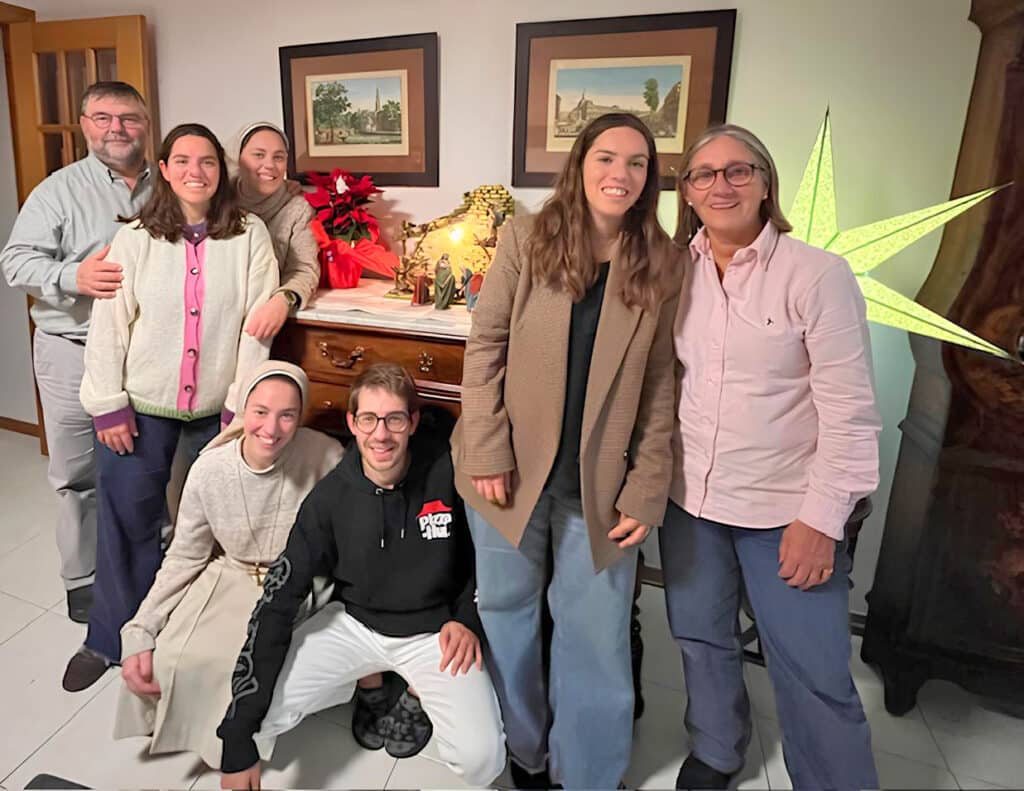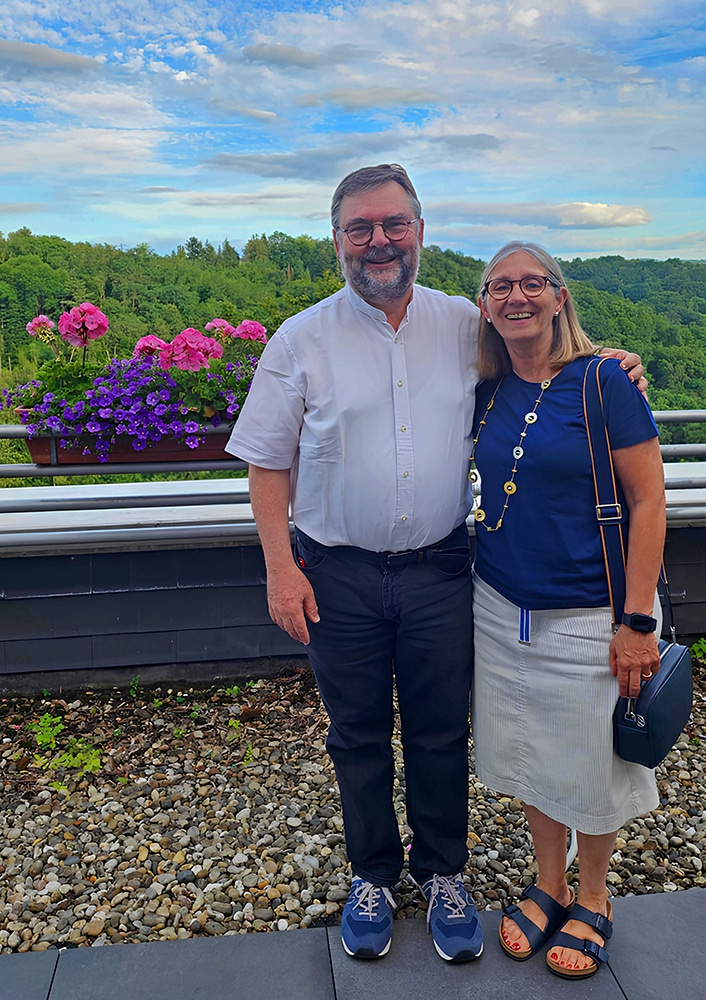The Schoenstatt Family Institute recently concluded its IX General Chapter, in which it elected the new international leadership of the community. Cristina and Rafael Muñoz, from Barcelona, Spain, were elected as General Superiors.
The Muñoz couple will assume this new mission for the next six years. They succeed the Argentinean José and Patricia Köstner, who have been General Superiors for the last six years. In addition to being the Institute’s international superiors, they will represent the community before the International Schoenstatt Presidium.
In an interview, the couple introduces themselves and gives us more details:
Cristina and Rafael, can you introduce yourselves?
We are Cristina and Rafael Muñoz from Barcelona, Spain. We have five children, including triplets, who live independently away from home. The two eldest are Sisters of the Congregation of the Purity of Mary. Cristina is a doctor, and Rafael is a businessman. We met Schoenstatt at 14 years old when Schoenstatt began to be founded in Barcelona. During our engagement, we had the desire to belong to the Family Institute; we were passionate about its charism despite not knowing many things. It was clear to us that, in some way, we wanted to evangelize, and for us to evangelize was and is to announce to the world the meaning of all that we are, live, and do.

What is the Schoenstatt Family Institute in the life of the Church, and what makes it a unique and original community?
Our father and founder met evangelical pastors from the Bodelschwing school in the Dachau concentration camp in 1942. There, he saw the strength that radiated from the families of the Protestant pastors to their communities. They often served as role models and were the animating nucleus of the communities. In this encounter, our founder saw a call from God and became convinced that the Catholic Church also needed such families. In response to this call from God, he founded our community so that, in time, it would also become the animating nucleus of the entire family movement. He was looking at a community that would ensure the Catholic ideal of marriage and the family and lives it exemplarily at every age.
We are a community of married couples with a juridical bond who aspire to live in the spirit of the evangelical counsels in following Christ. The original Covenant of Love with Mary is an important source of life for our daily lives. Community, ongoing marriage dialogue, and concrete forms help us live our mission with conviction every day.
What are the significant challenges and opportunities you see in community life today?
Each group in the Church participates in the mission of the world and the Church in a particular way. The Holy Spirit acts admirably. Therefore, our Institute needs to discover where the Spirit leads us to be authentic instruments for the mission.
We are sure that, if we are aware of intuiting the mission of the Spirit, we will understand that the charismatic mission of our Institute should not respond to the particular vision of a superior but to the serious discernment of what the Spirit wants and where this Spirit is leading us. Therefore, the mission is discovered by contemplating our world and reality and listening. As our Father and Founder said, we must have “our hand on the pulse of time and our ear to the heart of God.” For this, we need a great capacity to discern the things of God. Only by listening to the Word and contextualizing can we arrive at this discernment.
We are present in 19 countries with different cultures and languages, and this presents all the challenges that this entails. We have to think globally in order to act locally. We would also say that both as Schoenstatters and as members of the Institute, we must not lose the meaning for which we were founded. When we move away from the root, the tree withers.

As international leaders, what do you hope to be and achieve among the Institute’s families?
In the first instance, we would like to be a praying presence, listening to our brothers and sisters in the community. To respond to the needs of our time. We need to be able to acquire that sensitivity to recognize the voice of God in any circumstance of life as our father and founder did. To be faithful to our vocation as consecrated couples, we must remind the world that God does not forget his creatures and sing his Magnificat every day. We must search together for the opportunities and spiritual treasures beneath the rubble of a successful and glorious past. The past is past with all its good and evil. We must work to build this present and project it into the future. We have always liked Chesterton’s phrase: “Tradition is the transmission of fire, not the worship of ashes.”
Are there core messages and life streams from this chapter that you will take with you into the future? If so, what are they?
We believe that all the Chapter families, in one way or another, have left with the conviction that they are once again excited about the mission. Everything we experienced at the Chapter, the bonds between brothers of the Community, and being in Schoenstatt has meant revitalizing our faith. We are convinced that, although we are not all that we would like to be, if our hearts burn with love like that of our founder and his hero sodalists, with Mary, we can spread that fire wherever we are sent. We must show society that we are in love with our spouses and that married life and family are worth living to the fullest.
The Schoenstatt Family invites you to pray for Rafael and Cristina in view of their broad mission and offer contributions to the Capital of Grace — click here to send your offerings.
International website of the Schoenstatt Family Institute: if-schoenstatt.org/en
Translation: Sr. M. Lourdes Macías
